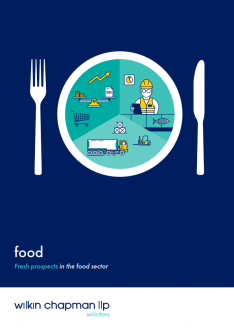As part of the UK Food Valley, the region yields 1/8th of the UK’s food production - a sector that’s worth £104.7bn. The food manufacturing industry alone accounts for 236,000 jobs in the UK - with employment increasing year on year.
The Grimsby Seafood Processing Cluster is the largest in northern Europe and one of the largest in the northern hemisphere. It employs nearly 6,000 people directly in over 50 approved seafood processing factories and trading businesses. Within the supply chain there are over 10,000 employees working in businesses ranging from ports, logistics, distribution, cold storage, engineering, packaging, and skills.
SMEs in the food sector account for 78% of UK businesses, 28% of employment, and 16% of turnover - but how can businesses like yours ensure they have the right skills, supply chains, and financial sustainability to thrive in an increasingly volatile economy?
In a labour-intensive market with many specialists to recruit and retain, and with regulations upholding strict standards to safeguard staff and consumers, expert advice from business and commercial law specialists with 100 years’ experience in the food sector could make all the difference.














